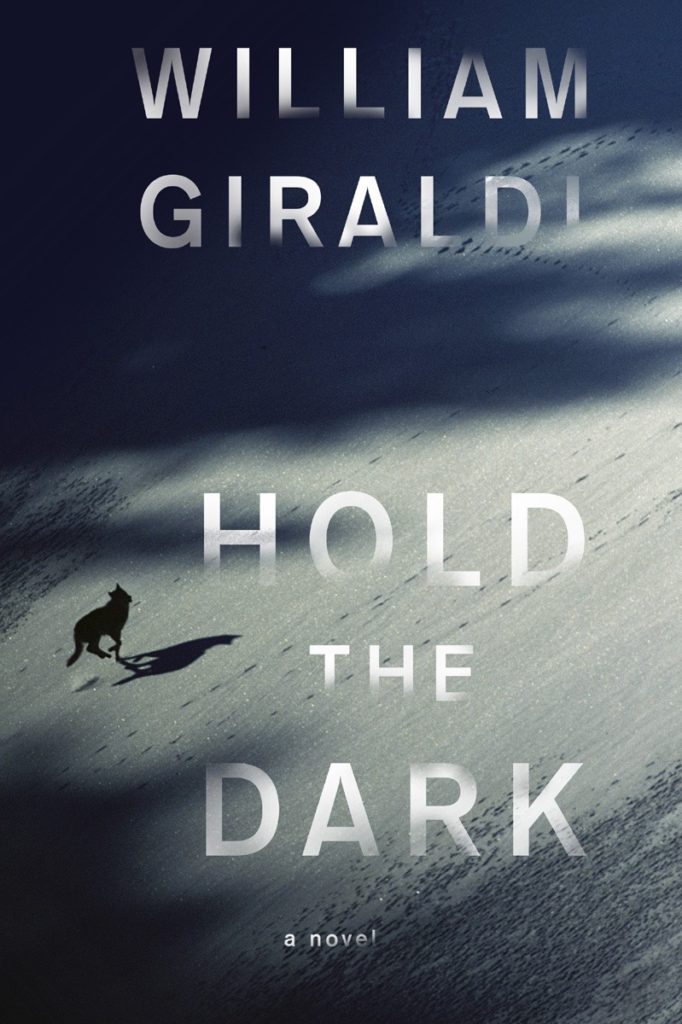
William Giraldi’s debut novel, Busy Monsters, was one of the first books I reviewed on this blog, more than seven years ago now. It was a bold and inventive comedy, emblematic of the mind behind it, and I doubt I would have been surprised had you told me, all those years ago, that Giraldi would go on to become a major American novelist and critic. Hold The Dark first appeared in 2014, though Netflix adapted it into a film in 2018, renewing interest in the novel. Giraldi’s second novel differs dramatically from his first, in subject matter, tone, and quarry, replacing the irreverence of Busy Monsters with a steady descent into depravity.
Hold The Dark is set in Alaska, in a fictional town – Keelut – named for an evil spirit famed in Inuit lore for its incarnation as a hairless dog that feasts on the bodies of the dead. The opening sentence nods to the myth: “The wolves came down from the hills and took the children of Keelut.” A string of wolf attacks on local children have put the village on edge, and the third attack, on the six-year-old son of Medora Slone (cognate of Medea, no doubt), prompts an invitation to Russel Core, a naturalist specializing in wolves, who arrives to investigate the unusual behavior of the local pack, who would never under normal conditions pray on humans. Medora’s husband, Vernon Slone, fights as a soldier in the Iraq war, but is discharged after receiving a bullet wound, and returns to his village to discover the death of his son. His rage at the death of his son, and the murderous rampage he undertakes in response, drives the plot forward, and presents us with Giraldi’s true quarry: not the deaths that nature deals, driven by desperation and hunger, but the motives of murder.
As in Conrad’s Heart Of Darkness – surely an inspiration here – the natural landscape takes on sinister significance, mirroring the savagery of man. The village of Keelut is “gripped in snow and stillness, and over the hills lay a breadth without end, an echoing cold with a mind that won’t be known.” The inhabitants of Keelut are a people apart, a self-selecting group of men and women living off of the land, and patterning their lives off the fluctuations of the northern weather. “This wildness here is inside us,” Medora Slone says. “Inside everything.” Indoor plumbing only recently arrived to Keelut, and many of the villagers still make do without it. The descriptive passages fill the reader with a sense of desolate isolation:
Beyond the snowed-in trees, just over these hills, lay an unknowable compass of tundra, a tapestry of whites and grays. Everywhere the living cold. Like grief, cold is an absence that takes up space. Winter wants the soul and bores into the body to get it. What were the possibilities of this place? There were patterns hidden here beneath the snow, patterns knowable but he did not know them.
Giraldi’s proxy for the reader, Russel Core, is an outside to Keelut, accustomed to the safety and comfort of civilization, and his every step in this new world is tentative and frightened. “What plague had invaded these vast silences? The virid earth, his memories of fruit breathing hotly in summer fields – all obliterated by this moonscape.” This is estrangement so intense, only an astronaut stepping foot on a distant moon can relate. “He wondered at the anguish of this place, all those snowed-over acres accountable to nothing.”
What sort of person can exist in this barren environment? Here, far from the civilizing influence of society, we get a glimpse of man at his most primitive, embodied by Medora’s husband, Vernon Slone. Driven mad by the death of his son and the disappearance of his wife, Vernon takes on the elemental force of nature itself, killing indiscriminately and without conscience, in a rampage reminiscent of a Cormac McCarthy novel. Hold The Dark is a gripping read, made memorable by Giraldi’s dexterous prose, but it leaves the reader unsatisfied. It merely gestures at its weighty themes, without offering us the depth of plot or character to properly examine them, and its brief length (200 pages) relegates even its most captivating characters to minor roles. Hold The Dark, then, marks a noble effort, but one nonetheless unequal to Giraldi’s promise as a writer.